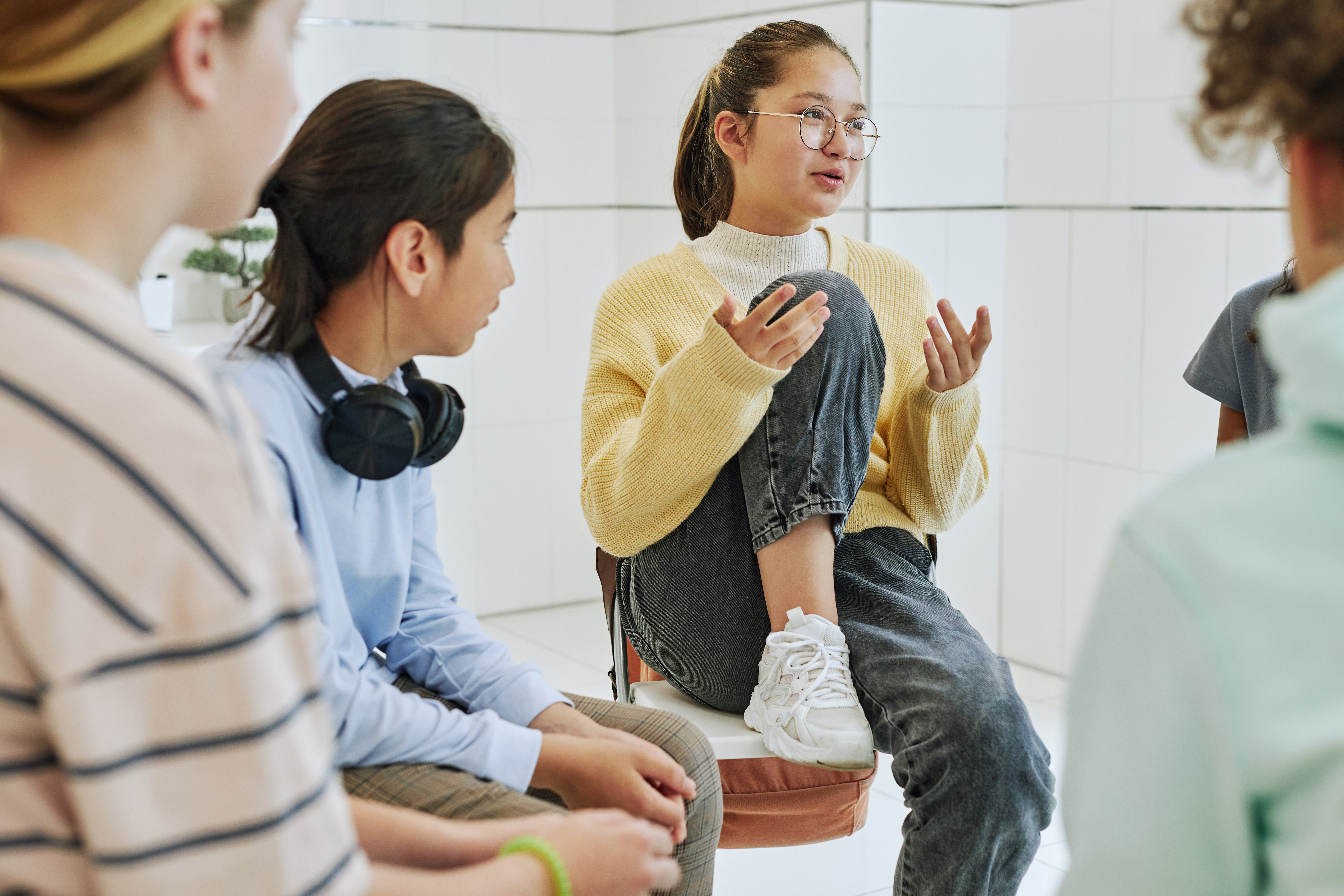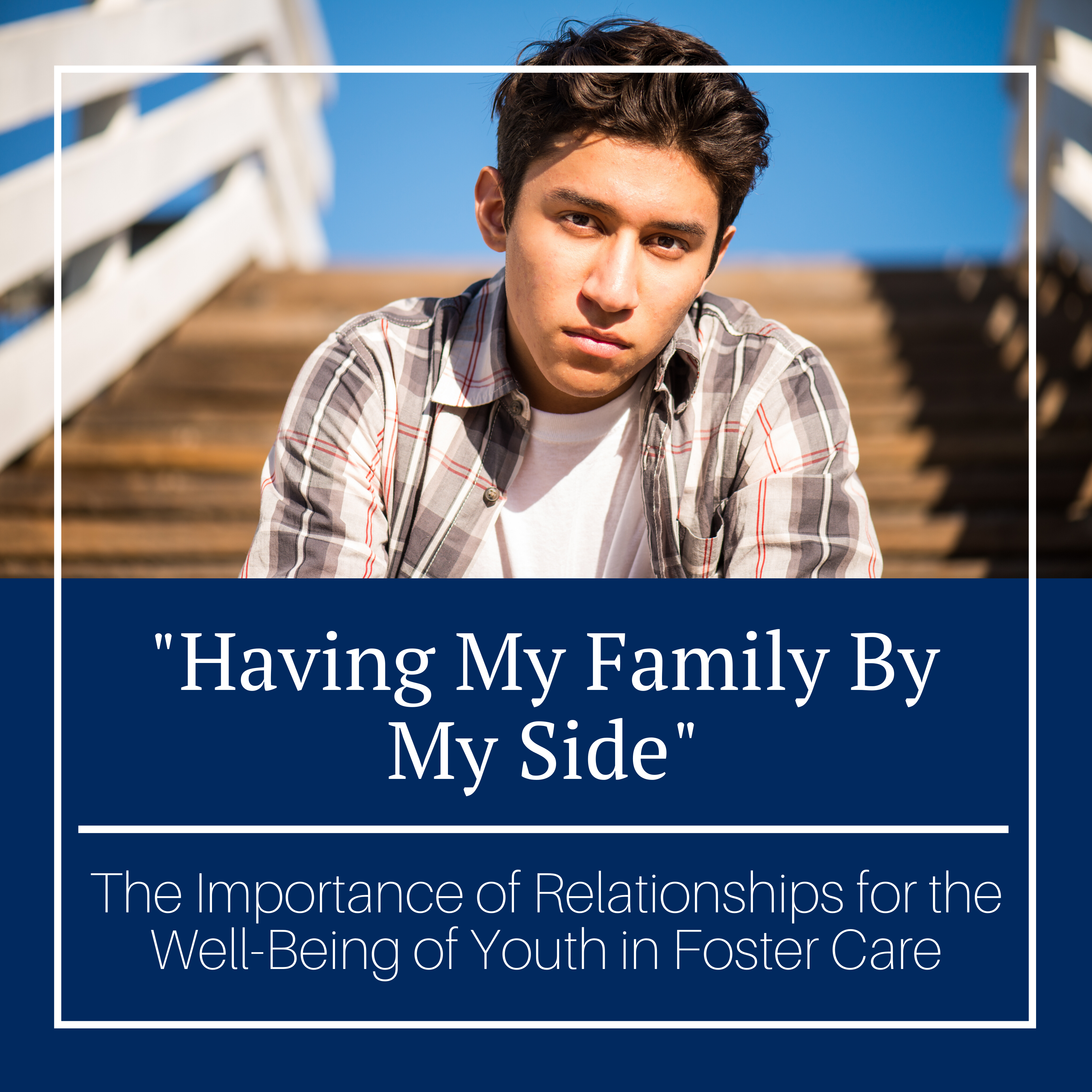Blog
Supporting Positive Mental Health and Thriving Among Adolescents
Relationships support young people’s growth across settings and different points of development. Having access to positive relationships is essential for all of us. What’s more, when we have relationships that are responsive to our needs as we develop, we gain protection from the negative impacts of stressors we encounter and we gain resources that support well-being.
Relationships also play a critical role in supporting positive mental health, which is one of several important and interconnected domains of our development. When we are supported in growing and maintaining positive mental health in adolescence, we increase our capacity to thrive.
We all have mental health, just like we all have physical health. While physical health refers to the well-being of our bodies, mental health includes our “emotional, psychological, and social well-being.” What’s more, our mental health “affects how we think, feel, and act, and helps determine how we handle stress, relate to others, and make choices” (SAMHSA, 2023).
Some of us may think that when we have good mental health, we are always happy and never upset, angry, or sad. The reality is that having good mental health means that we have a range of emotions in response to our everyday experiences. Psychologist Lisa Damour explains that mental health “is not about feeling good. It’s about having the right feelings at the right time and being able to manage those feelings effectively.” Recognizing that our emotions help us make sense of our experiences is an important aspect of mental well-being and thriving.
Importantly, we know that more young people are reporting challenges with maintaining good mental health, especially since the onset of the COVID-19 pandemic. For instance, in our surveys the percentage of youth reporting depressive symptoms increased from 16% in 2016 to 24% in 2022. The CDC reports similar trends: over 42% of high school students experienced persistent feelings of sadness or hopelessness in 2021 compared to 28% in 2011, and 29% shared they were experiencing poor mental health in 2021.
We Can Take Action
A key message from the Surgeon General’s advisory on youth mental health is that “we can take action.” For some youth, acute mental health care may be essential. But collectively, we can also invest in the supports, opportunities, and resources young people need to increase the likelihood of positive mental health and thriving. Drs. Andrew Fuligni and Adriana Galvan, co-directors of the Center for the Developing Adolescent, explain that youth need experiences and opportunities that support exploration, discovery, and contribution (in addition to adequate sleep), which are key developmental needs of adolescence. The other essential ingredient they identify for boosting mental health is strong relationships with caring adults. Experts from the CDC concur, noting that “Building strong bonds and connecting to youth can protect their mental health.”
At Search Institute, we’ve spent over a decade studying the key ingredients of developmental relationships, which are relationships that help us discover who we are, gain abilities to shape our own lives, and contribute to the world around us. Developmental relationships meet our needs as adolescents for exploring our identities, having agency over decisions that impact us, and cultivating a sense of purpose. Research tells us that strong relationships enhance well-being and growth, and play a critical role in supporting positive mental health.
Investing in Relationships
A developmental relationship allows each person involved to experience care, challenge, support, shared power, and expanded possibilities. These five key elements play an important role in helping us grow. Young people tell us that when they have stronger developmental relationships, they are better able to cope with challenges and deal with disappointments. They are also more likely to feel good about themselves and their future. These are all indicators of positive mental well-being and reflect the kinds of internal assets that help young people thrive.
We must work hard to ensure all youth have access to resources and conditions that support positive mental health and thriving, this includes equitable access to strong developmental relationships. We all benefit from having multiple developmental relationships with different people – from mentors, coaches and teachers, to family members and friends. What’s more, relationships are most likely to take root when they are encouraged and reinforced by policies and structures. Investing in strong developmental relationships is something we can all do as a way to support positive mental health and nourish growth.
If you or a young person you know are in need of support for your mental health, please visit https://www.nami.org/your-journey/kids-teens-and-young-adults/.
If you need immediate assistance, dial 988.





